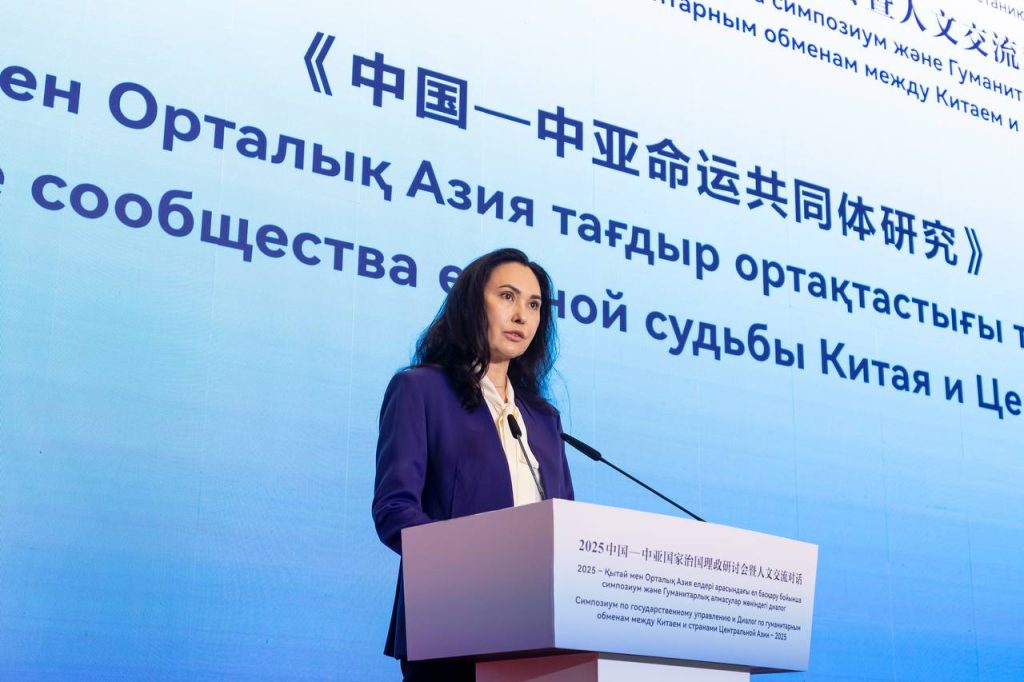In Kazakhstan’s capital, the Symposium on Public Governance and Dialogue on Humanitarian Exchanges between China and Central Asian Countries – 2025 took place. The event brought together more than 250 representatives from political, scientific, and diplomatic circles to discuss pressing issues of governance modernization, strengthening cultural cooperation, and developing regional ties. The organizers included the Publicity Department of the CPC Central Committee and the China Foreign Languages Publishing Administration.
Among the symposium participants were Secretary-General of the Conference on Interaction and Confidence Building Measures in Asia (CICA) Kairat Sarybay, Vice Minister of Culture and Information of Kazakhstan Evgeny Kochetov, Deputy Secretary-General of the Shanghai Cooperation Organization Piao Yangfan, Ambassador Extraordinary and Plenipotentiary of China to Kazakhstan Han Chunlin, as well as leading experts and representatives from the scientific and public circles of the region’s countries.
In his speech, Deputy Head of the Publicity Department of the CPC Central Committee Hu Heping emphasized that under global challenges, multilateralism, modernization, and regional cooperation become the key to shared prosperity. He called for the revitalization of humanitarian exchanges in education, science, culture, media, and youth initiatives, noting that CICA holds an important place in the architecture of regional dialogue.
Special attention at the symposium was given to the presentation by Director of the China Studies Center Gulnar Shaimergenova. During the presentation of the report Researching the China–Central Asia Community of Shared Future, she highlighted that this concept not only offers a new model of cooperation but also lays the foundation for forming a fairer, multipolar, and inclusive world order. Shaimergenova reminded that the initiative was first voiced by Chinese President Xi Jinping and is now being realized through concrete projects—from transport and energy links to humanitarian cooperation. She particularly stressed that Kazakhstan views the “China–Central Asia” format as a strategic platform for aligning national development programs with the Belt and Road Initiative.
Within Subforum I Global Changes and Regional Cooperation, Director Shaimergenova delivered an analytical report, emphasizing that under the conditions of intensifying global competition and world system transformation, regional interaction becomes key. She provided data on record transportation volumes along China–Europe routes via Kazakhstan, the growth of the Trans-Caspian route, and the importance of joint infrastructure projects. According to her, it is also crucial to establish regional crisis-response mechanisms, digital connectivity, and humanitarian programs, which will help regions not only adapt to global changes but also influence them.
The director noted that the China Studies Center in Astana sees its mission not only as providing expert support to integration processes but also as creating dialogue platforms, developing joint strategic solutions, strengthening regional agency, and forming a positive narrative about Central Asia on the international stage.
The symposium became an important platform for deepening dialogue, exchanging experiences, and developing coordinated approaches to enhancing cooperation between China and Central Asian countries in the interests of peace, sustainable development, and the prosperity of the region’s peoples.

